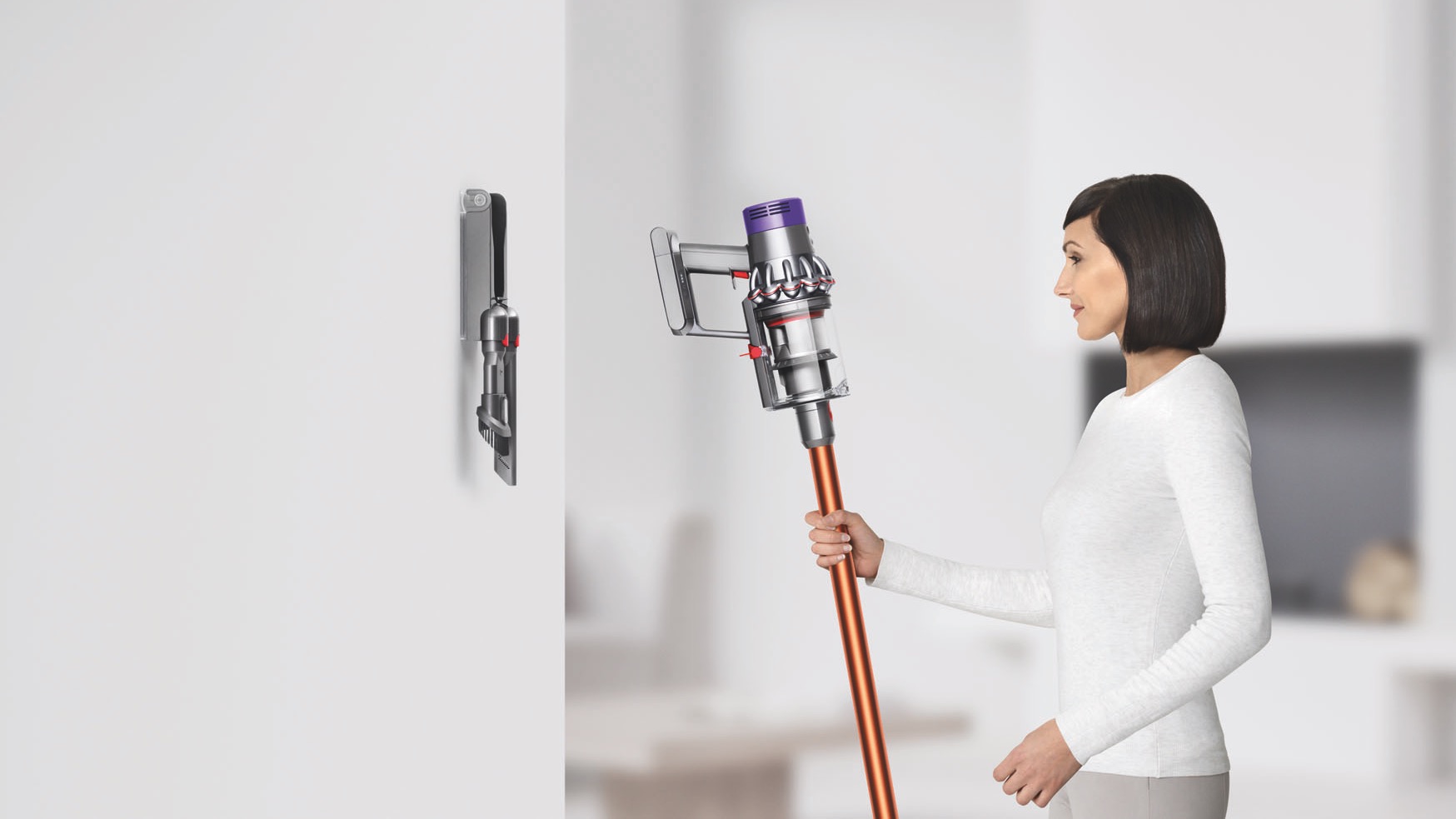James Dyson promises the Cyclone V10's battery will last 15 years
Battery-life longevity won't suffer as Dyson goes all cordless

Sign up for breaking news, reviews, opinion, top tech deals, and more.
You are now subscribed
Your newsletter sign-up was successful
Dyson is going all in on cordless vacuums. The company revealed the new Dyson Cyclone V10 at a tri-city event on March 6, and while Dyson will continue to sell its old corded models, it’s focusing all future research and development on battery-powered vacuum cleaners.
As a technology journalist with plenty of experience using battery-powered gadgets, my first question was whether the built-in rechargeable battery would wear down over time. After all, lithium batteries have a limited number of charging cycles, and even before you hit that wall, battery life generally tends to degrade pretty significantly in the first year of use.
According to James Dyson, who founded the company back in 1987, that won’t be an issue for the Cyclone V10.
“Fifteen years of daily use might get you down to 80% battery,” he said at a roundtable discussion with journalists after the New York City unveiling. He added: “But by then you’ll probably want to upgrade to our new model anyway.”
- Wanted an automated cleaner? Check out the best robot vacuums
Secret to longevity
If you want to get more specific, the Cyclone V10’s battery is good for 800 charge cycles, but based on how most people will use the vacuum, it should last a lot longer.
“That’s when it’s fully discharged, which rarely happens,” Dyson said.
The secret to Dyson’s long-lasting battery is actually one of the new vacuum cleaner’s coolest features: the trigger. Instead of turning the Cyclone V10 on and off with a switch, you pull a trigger on the handle (which looks a bit like a space-age laser gun) to activate its digital motor.
Sign up for breaking news, reviews, opinion, top tech deals, and more.
So, you might vacuum for a few seconds in one spot and then let go of the trigger while you reposition. This gives the battery small moments of respite, even while it’s being used, so it won’t drain as quickly.

The trigger control also helps stretch out each individual battery life cycle. The Cyclone V10 packs a 2,600mAh battery (that’s 500mAh more than the previous DC59 model), and, according to James Dyson, you’ll get about an hour of cleaning per charge – even if the battery is only rated to last for 40 minutes.
He added that thanks to its powerful motor, you’ll never need to vacuum for a full hour anyway. That means the battery will rarely get completely depleted as long as you remember to recharge it after every use (which takes 3.5 hours to do, according to Dyson).
As for those old, corded vacuums, these aren't going away just yet. So, if you’re not comfortable with the idea of a wireless vacuum, Dyson still has you covered. The company claims that its new Cyclone V10 is just as powerful as any wired model, though, and its founder is confident that consumers will make the leap with him.
“Old machine sales are going to fall of a cliff,” he said.
- Cool reading: our hands on Dyson Pure Cool (2018) review

Jacob Kleinman is the senior entertainment editor at inverse.com